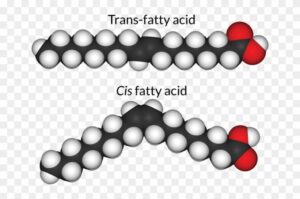Our reading for this class, “Fat Wars”, chapter nine of Shilpa Ravella’s book, A Silent Fire: The Story of Inflammation, Diet, and Disease (2022) repeatedly used normative words to describe foods and their chemical contents. I find the most illustrative example to be on page 162 when Ravella (2022) describes the fats found in Crisco as “insidious”.

Photo courtesy of pikpng.com
This book was published in 2022, so it is not old by any means. It exists in the modern context of how we discuss food; the discussion has not largely changed since then and should be held to the same standards that we hold ourselves to now. It is my personal opinion that we as an American society have moved past this sort of conversation and the language it uses. I thought we had started talking about how we can use this knowledge about types of foods and the compounds within them to make healthier choices while still enjoying the food we eat and participating in our native foodways. The idea that one foodway is morally superior to another is a dangerous rhetoric that I strongly object to.
In the same vein, Ravella (2022) poses the populations in the Seven Countries Study that have lower rates of heart disease as sort of protagonists in the ‘fat wars’ she describes. In doing this, she is perpetuating the stereotype that American consumers are unintelligent (the ‘Dumb American’) and are unable to make healthy choices for themselves (Ravella, 2022). When field experts like Ravella stop treating the American public with indignity, we may learn and grow together as a nation but until then we will continue to operate under the strain of health moralism.
Further, Ravella holds an MD and is a gastroenterologist. She interacts with patients who are experiencing symptoms and who come to her vulnerably. As a chronically ill person, I find it worrisome that she speaks this way about the relationship between our bodies and food. It places an element of blame on her patients and on chronically ill people for their suffering which is told to us constantly writ large and that I maintain does not belong in healthcare.
I would like to contrast all of this with Professor Christine O’Neill’s presentation which covered many of the same concepts. She focused on putting words we all know from daily life into an understandable scientific context. She brought terminology from the lab back into the kitchen by using these terms to break down ingredients commonly used in American cooking such as butter. Prof. O’Neill did all this while maintaining a friendly professionalism that encouraged curiosity and student interaction. She was able to demonstrate that it is not only possible but beneficial to approach this topic with an attitude of good faith and I applaud Prof. O’Neill for her ability to do so.
Works Cited:
Ravella, S. (2022). A Silent Fire. W.W. Norton & Company.